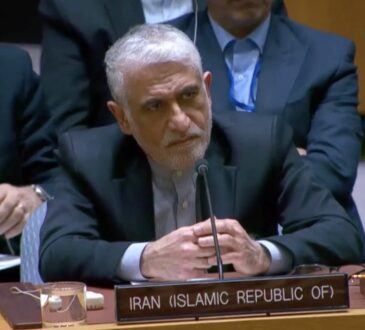
The decision has many people wondering how far the current administration is willing to go in changing the makeup of the U.S. military.
When President Donald Trump returned to office in January, Master Sergeant Logan Ireland felt anxious about what it might mean for his future in the Air Force. Ireland is 38, transgender, and has spent most of his adult life serving his country. During Trump’s first term, Ireland had to deal with complicated rules just to stay in the military. After Trump said he wanted to ban transgender people from serving in 2017, the policy was formalized, but people like Ireland — who had already begun transitioning — were allowed to stay if they had a doctor officially diagnose them with gender dysphoria. That same diagnosis that once protected his career is now being used to force him and thousands of other transgender troops out of the service, even after 15 years of deployments and sacrifice.
Ireland says the Air Force shaped him as a person and helped him find confidence and purpose. But now, in the middle of a messy and confusing process of removing transgender service members, he has also been caught in another problem: he was approved for early retirement benefits, and then those benefits were taken back with no explanation. He is now one of 17 transgender members of the Air Force and Space Force suing the U.S. government for what they say is an illegal reversal of promised retirement benefits.
Earlier this year, these service members — each with 15 to 18 years of service — were told they qualified for early retirement under TERA, a program that lets veterans get their pensions and health care benefits before reaching 20 years of service. But months later, they were told those benefits were being revoked. Lawyers and advocates say this type of reversal has never happened before, and they worry it signals how far the administration might go in reshaping the military and reducing protections for transgender people.
Just days after returning to office, Trump signed an executive order that described being transgender as a “falsehood” and claimed that having gender dysphoria made someone unfit for military service. The Supreme Court later allowed the administration to enforce its ban while lawsuits continue. Active-duty transgender troops were told they had until July 7 to identify themselves and start a “voluntary” separation process. If they agreed to leave, they would receive extra pay and would not need to repay bonuses or education benefits. Ireland chose a different path: he wanted to challenge his dismissal through an involuntary separation process, hoping to convince a review board that he should be allowed to stay.
But as the options for transgender service members narrowed, Ireland realized he would have to leave the military community he loved. Even so, he believed early retirement benefits would at least give him a stable foundation as he planned for civilian life. He applied for TERA, was approved in June, and began planning a retirement ceremony for November. His wife — also transgender and a veteran — talked with him about moving to the mainland U.S. His parents booked flights. He even started looking for civilian jobs supporting the military.
Then, in August, the Air Force abruptly canceled his benefits without giving a reason. A spokesperson later said about a dozen service members were “prematurely notified” that they could retire with benefits, but offered no further details.
Losing these benefits is devastating. Military families move frequently and make heavy financial sacrifices, relying on retirement benefits to secure their future. Lawyers estimate each service member affected could lose between $1 million and $2 million over the course of their lifetime. Under the law, once a retirement order has been issued, it is considered final unless rare conditions apply — such as fraud or a major mistake — none of which apply here. Advocates argue the government is not only forcing people out unfairly but doing so in a way that feels deliberately harsh.
Ireland is still technically employed by the military, but he has been placed on administrative leave because of the executive order. He cannot work, cannot seek new employment, and does not know when he will be officially separated. His planned December exit date has been voided, leaving him unable to prepare for life outside the military.
Other transgender troops are facing similar uncertainty. Some, like Senior Master Sergeant Jamie Hash, do not qualify for early retirement but are still unable to plan their next steps because they are stuck in administrative limbo. Many rely on their military health insurance and are scrambling to figure out how to replace it. Advocacy groups estimate there are more than 4,000 transgender service members, but even the Department of Defense does not know the exact number. What they do know is that losing thousands of trained troops — pilots, medical experts, linguists, and more — will cost billions and leave major gaps in military readiness.
Transgender people were allowed to serve openly starting in 2016 under President Barack Obama. Trump’s earlier ban was allowed to take effect but included exceptions for people who had already transitioned. This time, the administration is going further by targeting anyone with any history of gender dysphoria. Some federal judges have said the new ban is unconstitutional, but the Supreme Court has allowed it to stay in place while lawsuits continue. Advocates fear that if the government can take retirement benefits from these service members, it might try to strip benefits from other groups next.
Ireland says the last few months have been emotionally exhausting and have made it hard to imagine his future. But he insists he will keep fighting — not just for himself, but for every transgender service member whose service and dignity are on the line. He refuses to accept the idea that his years of dedication can simply be erased.
Even though he feels betrayed, he says no policy can wipe away what transgender troops have already given to their country.




